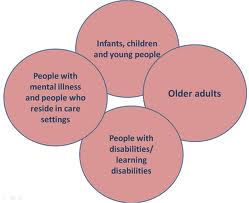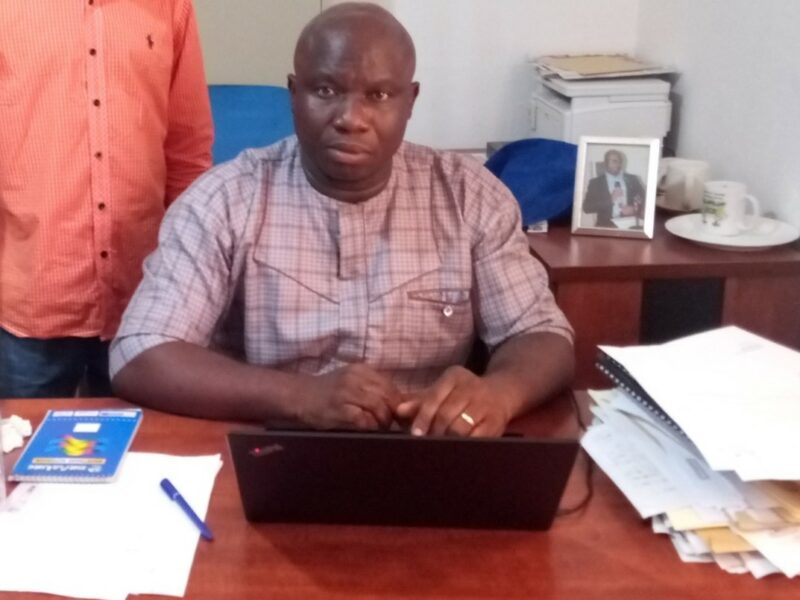New study reveals humanitarian system’s blind spot to vulnerable groups in global emergencies
The needs of older people and young children are not being catered for in the humanitarian system’s response to emergencies and disasters around the world, aid agencies HelpAge International and Save the Children said today.
A new report from HelpAge International, the only organisation which solely focuses on helping older people in emergencies – and endorsed by children’s charity Save the Children – reveals the very low number of projects that target older people or children under five. These are two of the most vulnerable groups within populations affected by emergencies.
The study paints a picture of a humanitarian system incapable of delivering adequate assistance. Both older people and children under five are highly sensitive to shocks associated with humanitarian crises. They both face a range of specific risks associated with their age, including access to adequate health care and nutritional support.
Older people
The report found that:
- Only 1% of funded projects target older people: Out of 2,800 project proposals submitted to the Consolidated Appeals Process (CAP – led by the UN Office for the Coordination of Humanitarian Affairs) only 60 project proposals (2.1%) included at least one activity targeting older people – and only 30 of these (1%) were actually funded. This low figure is clearly unacceptable when the number of older people makes up as much as 25% per cent of the population in some emergency contexts.
Older people face specific challenges in emergencies related to mobility, visual and aural impairments which have an impact on their ability to access mainstream humanitarian services. Agencies need to modify their programmes by introducing, for example, separate queues for distributions of aid. Older people also require vital support in their livelihoods to meet their own needs and those of their dependants. Somalia bucks the trend with 22 project proposals submitted, while Yemen and South Sudan have gone from a standing start of zero projects each to 10 projects and 9 projects respectively.
Children under five
The study also examined project proposals submitted for the vulnerable group at the other end of the age spectrum – children under five.
- Only 2.3% of projects target children under 5: Out of the 2,800 proposals submitted, only 111 projects included at least one activity targeting children under five – and 65 were funded (2.3%). Although slightly better than the data for older people, these numbers dramatically highlight the fact that humanitarian operations are not focused on meeting the specific needs of vulnerable population groups.
Given the fact that children make up approximately 14.9% of the population in Africa – as well as the traditional media emphasis put on assistance to children – HelpAge expected that the specific needs of the under-5s would be significantly more represented.
Frances Stevenson, Head of Emergencies at HelpAge International, said:
“The findings of this report are sadly in line with a growing body of evidence showing the limited ability of humanitarian operations to deliver assistance based on needs. We know that people have different healthcare, nutrition, livelihoods and general protection needs as they grow older.
“The fact that there are countries in which older people’s particular needs are completely ignored, in some cases for two years in a row, is completely unacceptable and raises serious questions for the humanitarian community, not least because the situation constitutes a beach of the humanitarian principle of impartiality.”
Gareth Owen, Humanitarian Director of Save the Children, said:
“We know children are always the most vulnerable in emergencies, but despite this, the sector still finds it difficult to fund projects that specifically target them. Children caught up in humanitarian crises are more likely to become ill, suffer the effects of malnutrition, be separated from their parents and are at greater risk of being targeted for physical and sexual abuse. The system must be reformed so the needs of children are prioritised in emergencies.”
Siliva Stefanoni, Acting CEO of HelpAge International, said:
“The report provides further evidence that humanitarian programmes do not address the specific needs of highly vulnerable groups such as older people and children under five, in emergencies. It is crucial that the Office for the Coordination of Humanitarian Affairs, leading agencies, humanitarian coordinators and donors provide an environment which encourages programming based on an accurate assessment of needs, and provide leadership to ensure partners adhere to the principles to which they are committed”
Stay with Sierra Express Media, for your trusted place in news!
© 2013, https:. All rights reserved.






